Peugeot 5008 vs Skoda Elroq - Differences and prices compared
Compare performance (325 HP vs 340 HP), boot space and price (37600 £ vs 29100 £ ) at a glance. Find out which car is the better choice for you – Peugeot 5008 or Skoda Elroq?
Costs and Efficiency:
Price and efficiency are often the first things buyers look at. Here it becomes clear which model has the long-term edge – whether at the pump, the plug, or in purchase price.
Skoda Elroq has a distinct advantage in terms of price – it starts at 29100 £ , while the Peugeot 5008 costs 37600 £ . That’s a price difference of around 8537 £.
In terms of energy consumption, the advantage goes to the Skoda Elroq: with 15.20 kWh per 100 km, it’s to a small extent more efficient than the Peugeot 5008 with 17.80 kWh. That’s a difference of about 2.60 kWh.
As for electric range, the Peugeot 5008 performs somewhat better – achieving up to 669 km, about 96 km more than the Skoda Elroq.
Engine and Performance:
Under the bonnet, it becomes clear which model is tuned for sportiness and which one takes the lead when you hit the accelerator.
When it comes to engine power, the Skoda Elroq has a barely noticeable edge – offering 340 HP compared to 325 HP. That’s roughly 15 HP more horsepower.
In acceleration from 0 to 100 km/h, the Skoda Elroq is noticeable quicker – completing the sprint in 5.40 s, while the Peugeot 5008 takes 6.50 s. That’s about 1.10 s faster.
In terms of top speed, the Peugeot 5008 performs somewhat better – reaching 220 km/h, while the Skoda Elroq tops out at 180 km/h. The difference is around 40 km/h.
There’s also a difference in torque: Skoda Elroq pulls evident stronger with 679 Nm compared to 511 Nm. That’s about 168 Nm difference.
Space and Everyday Use:
Cabin size, boot volume and payload all play a role in everyday practicality. Here, comfort and flexibility make the difference.
Seats: Peugeot 5008 offers evident more seating capacity – 7 vs 5.
In curb weight, Peugeot 5008 is a bit lighter – 1700 kg compared to 1953 kg. The difference is around 253 kg.
In terms of boot space, the Skoda Elroq offers clearly perceptible more room – 470 L compared to 348 L. That’s a difference of about 122 L.
In maximum load capacity, the Peugeot 5008 performs noticeable better – up to 2232 L, which is about 652 L more than the Skoda Elroq.
When it comes to payload, Peugeot 5008 slightly takes the win – 640 kg compared to 531 kg. That’s a difference of about 109 kg.
Who wins the race?
The Peugeot 5008 proves to be has a very small edge and therefore becomes our DriveDuel Champion!
Peugeot 5008 is the better all-rounder in this comparison.
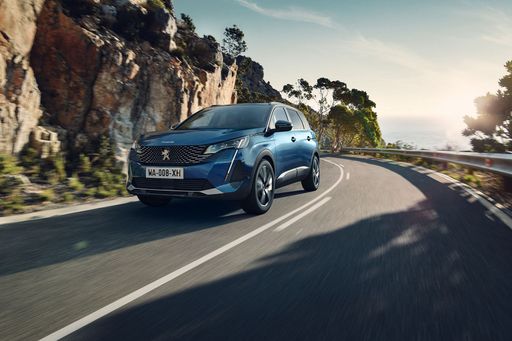
Peugeot 5008
Costs and Consumption
View detailed analysis
Engine and Performance
View detailed analysis
Dimensions and Body
View detailed analysis
Peugeot 5008
The Peugeot 5008 blends Peugeot's sharp design with the space and versatility families actually need, wrapping clever packaging and a premium-feeling cabin in a crisp, SUV-like silhouette. It drives with more poise than you'd expect from a people carrier, serves up practical touches and flexible seating for everyday chaos, and still looks good when parked outside the school gates.
details

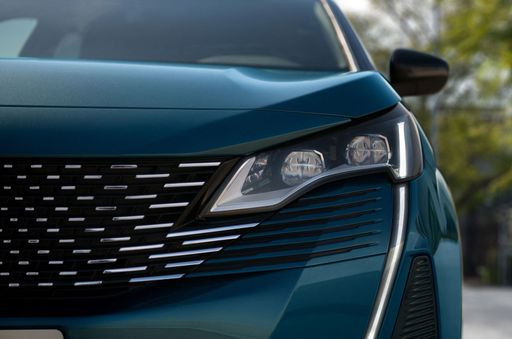

Skoda Elroq
The Skoda Elroq is a cleverly packaged family SUV that mixes roomy practicality with sharp, modern looks, making it an easy pick for buyers who prefer common sense over flash. On the road it's composed and user-friendly, with thoughtful interior details that turn everyday driving into something pleasantly efficient — a sensible companion with a wink.
details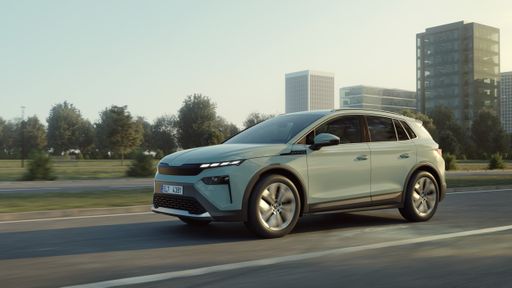
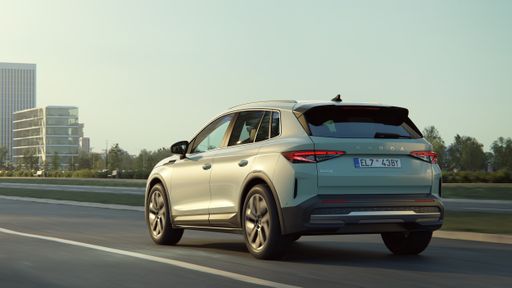
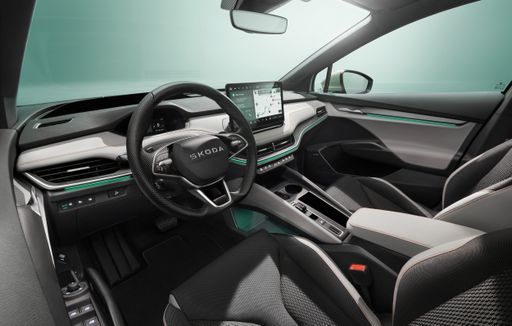
Costs and Consumption |
|
|---|---|
|
Price
37600 - 54200 £
|
Price
29100 - 45500 £
|
|
Consumption L/100km
2.7 - 5.6 L
|
Consumption L/100km
-
|
|
Consumption kWh/100km
17.8 - 18.6 kWh
|
Consumption kWh/100km
15.2 - 16.5 kWh
|
|
Electric Range
78 - 669 km
|
Electric Range
377 - 573 km
|
|
Battery Capacity
0.4 - 96.9 kWh
|
Battery Capacity
52 - 79 kWh
|
|
co2
0 - 127 g/km
|
co2
0 g/km
|
|
Fuel tank capacity
55 L
|
Fuel tank capacity
-
|
Dimensions and Body |
|
|---|---|
|
Body Type
SUV
|
Body Type
SUV
|
|
Seats
7
|
Seats
5
|
|
Doors
5
|
Doors
5
|
|
Curb weight
1700 - 2344 kg
|
Curb weight
1953 - 2268 kg
|
|
Trunk capacity
294 - 348 L
|
Trunk capacity
470 L
|
|
Length
4791 mm
|
Length
4488 mm
|
|
Width
1895 mm
|
Width
1884 mm
|
|
Height
1694 mm
|
Height
1608 - 1625 mm
|
|
Max trunk capacity
2178 - 2232 L
|
Max trunk capacity
1580 L
|
|
Payload
596 - 640 kg
|
Payload
470 - 531 kg
|
Engine and Performance |
|
|---|---|
|
Engine Type
Electric, Petrol MHEV, Plugin Hybrid
|
Engine Type
Electric
|
|
Transmission
Automatic
|
Transmission
Automatic
|
|
Transmission Detail
Reduction Gearbox, Dual-Clutch Automatic
|
Transmission Detail
Reduction Gearbox
|
|
Drive Type
Front-Wheel Drive, All-Wheel Drive
|
Drive Type
Rear-Wheel Drive, All-Wheel Drive
|
|
Power HP
145 - 325 HP
|
Power HP
170 - 340 HP
|
|
Acceleration 0-100km/h
6.5 - 10.2 s
|
Acceleration 0-100km/h
5.4 - 9 s
|
|
Max Speed
170 - 220 km/h
|
Max Speed
160 - 180 km/h
|
|
Torque
230 - 511 Nm
|
Torque
310 - 679 Nm
|
|
Number of Cylinders
3 - 4
|
Number of Cylinders
-
|
|
Power kW
107 - 239 kW
|
Power kW
125 - 250 kW
|
|
Engine capacity
1199 - 1598 cm3
|
Engine capacity
-
|
General |
|
|---|---|
|
Model Year
2024 - 2025
|
Model Year
2025
|
|
CO2 Efficiency Class
A, D, B
|
CO2 Efficiency Class
A
|
|
Brand
Peugeot
|
Brand
Skoda
|
Is the Peugeot 5008 offered with different drivetrains?
Available configurations include Front-Wheel Drive or All-Wheel Drive.




